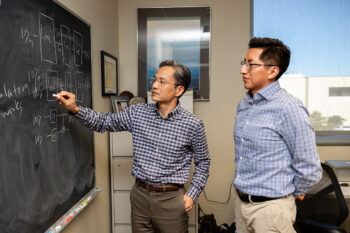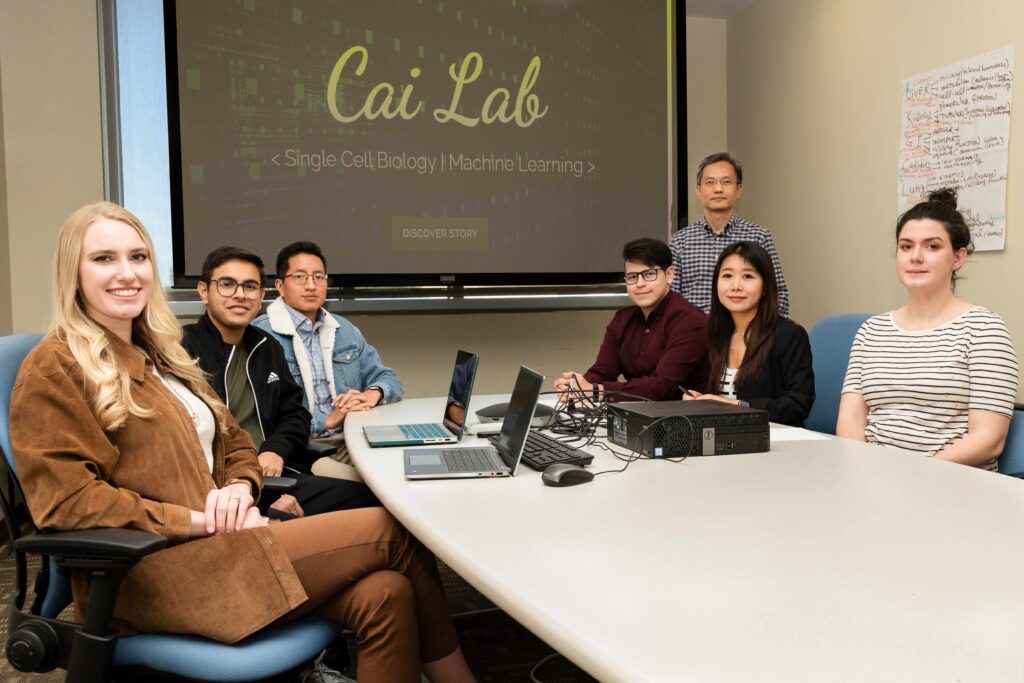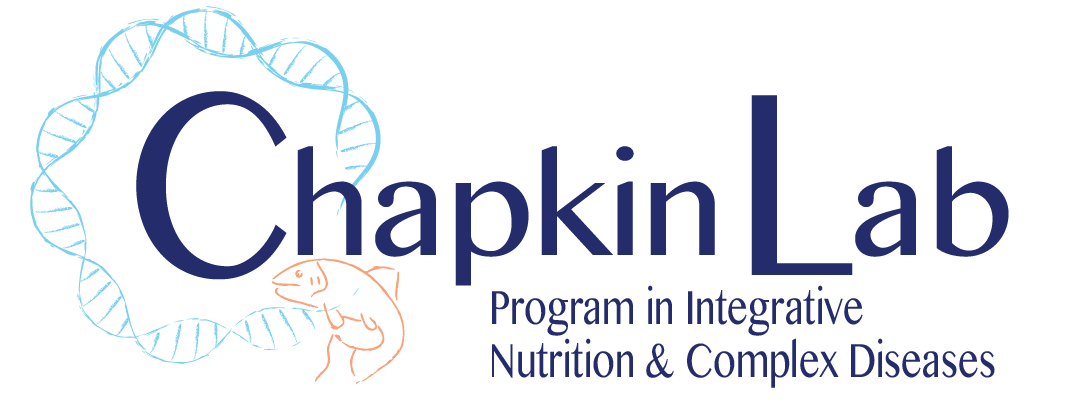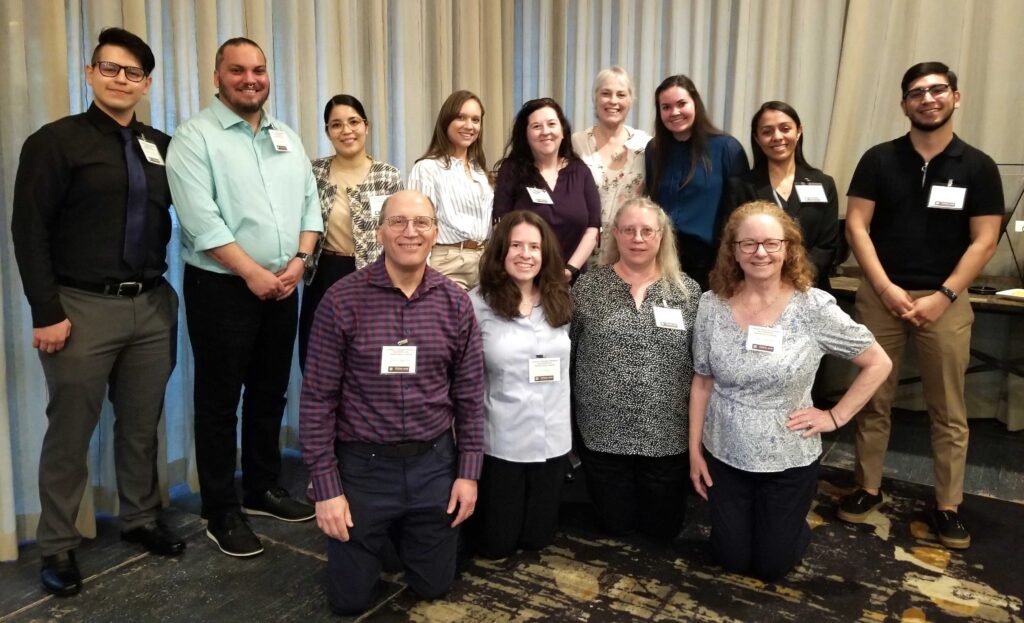Laboratory Research Section of TREC
James Cai, PhD : Core Director
Professor, Department of Veterinary Integrative Biosciences; Director, CPRIT Single Cell Data Science Core
Our research focuses on elucidation of genotype-phenotype relationships using computational and evolutionary genomics approaches. We develop computational tools and statistical tests to estimate key parameters of evolutionary processes that shape the sequence and expression variability within and between individuals, populations, and species. We apply theories to genomic diversity and divergence data in order to search for the signatures of selection in the genomes of different organisms.


Assistant Professor, Department of Statistics, Texas A&M University; Co-Director, CPRIT Single Cell Data Science Core
Yang Ni, PhD, has worked in the area of statistics and machine learning. He has developed novel computational methods for gene regulatory network analysis with applications to multi-omic data. He has published over 40 articles and has developed freely available software in R/C++ and web-based visualization tools. His research is well funded by federal and state agencies including NIH, NSF, and CPRIT.
Dr. Ni has focused on the development of novel Bayesian graphical models for discovering gene regulatory networks with observational multi-omic data. Gene regulatory networks define the regulatory relationships of genes and their products, and are instructive for understanding complex biological processes and the regulatory mechanisms underlying cellular systems. The advent of next-generation sequencing technologies has generated an unprecedented amount of multi-omic data, which have enabled researchers to computationally investigate the causal gene regulatory relationships. However, multi-omic data are heterogeneous, noisy, high-dimensional, often cross-sectional and observational, which makes causal structure learning a very challenging task. He has consistently published papers in high-profile statistics and machine learning journals and conference proceedings to explicitly address those challenges for Bayesian inference of causal gene regulatory networks.
Single cell technologies such as single-cell RNA-seq (scRNA-seq) are rapidly revolutionizing a wide range of biomedical research. Unlike traditional bulk RNA-seq technologies that measure global gene expression averaged over a heterogeneous cell population, scRNA-seq is able to examine the process of DNA transcription in individual cells and is thus useful for unveiling transcriptomic heterogeneity at the single-cell level. We are facing substantial statistical and computational challenges in analyzing scRNA-seq data because they are massive, sparse, heterogeneous, and noisy. We (in collaboration with Dr. Robert Chapkin and Dr. James Cai at Texas A&M) are developing novel statistical methods that address the challenges in (i) finding new cell types, (ii) characterizing cell differentiation dynamics, (iii) discovering gene regulations at the single-cell level, (iv) monitoring structural, functional, or phenotypic changes under different experimental conditions, and (v) relating rare transitional cells or cell phenotypes to disease progression. We are also working on integrating single-cell multi-omics data. The unique challenge of data integration in single-cell multi-omics is that each observation/cell can be assayed only by one modality. Therefore, neither horizontal nor vertical data integration applies here. This line of research has been supported by 1R01GM148974-01 and CPRIT RP230204.


Single Cell Data Science Core
The mission of SCDS is to provide bioinformatics and informatics research services that have a measurable impact on the ability of research investigators at Texas A&M University to share their findings and publish their work.

Dr. Robert Chapkin, Deputy Director Texas A&M Regional Center of Excellence in Cancer Research, joins the SCDS Core for the monthly meeting to discuss the research with the TREC Scholars.

